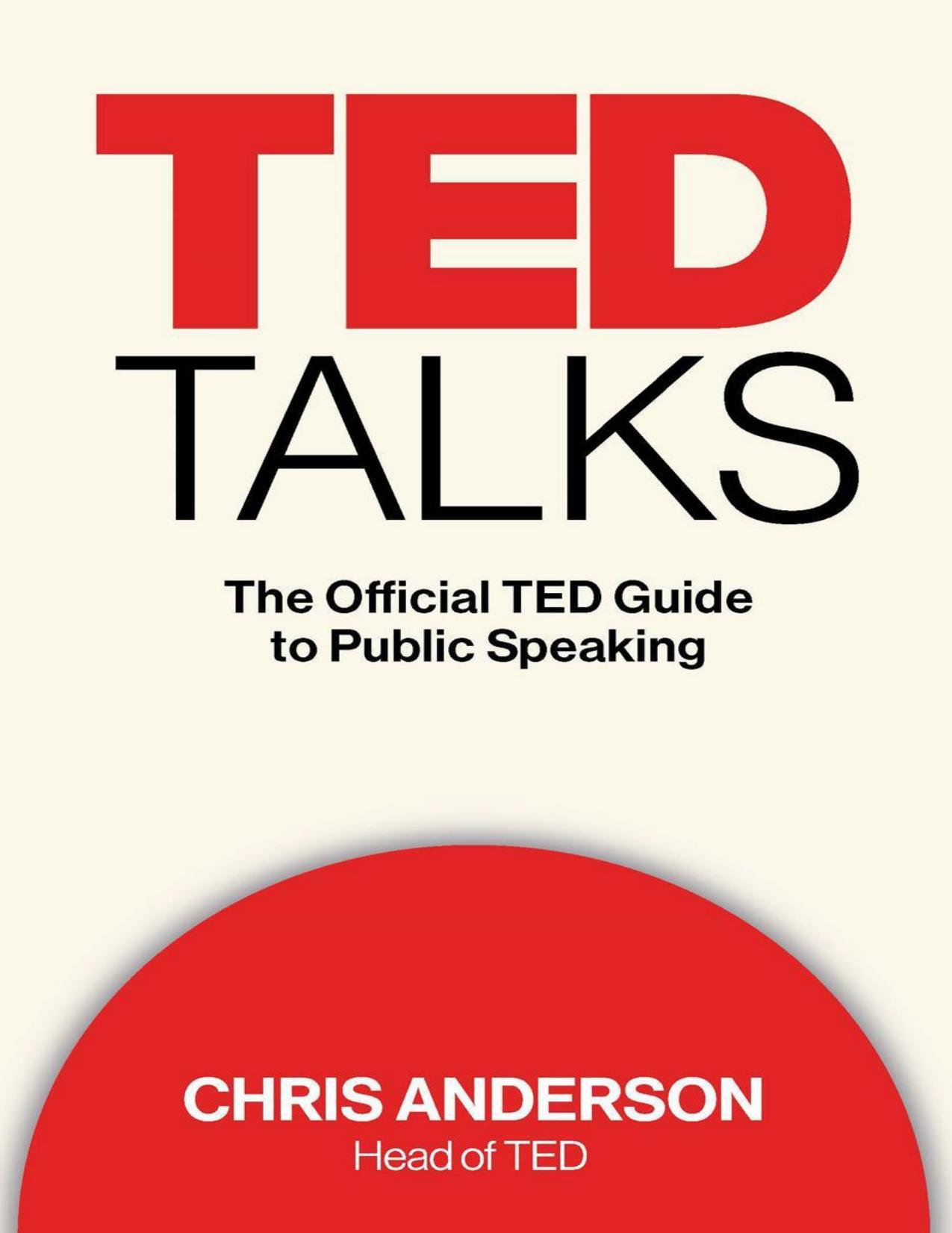TED Talks: The Official TED Guide to Public Speaking by Chris Anderson

Author:Chris Anderson [Anderson, Chris]
Language: eng
Format: epub, mobi, azw3, pdf
Publisher: Houghton Mifflin Harcourt
Published: 2016-05-02T22:00:00+00:00
A. write out the talk in full as a complete script (to be read, memorized, or a combination of the two), or
B. have a clearly worked-out structure and speak in the moment to each of your points.
There are powerful arguments in favor of each strategy.
SCRIPTED TALKS
The huge advantage of going the scripted route is that you can make the best possible use of your available time. It can be incredibly hard to condense all you want to say into 10, 15, or 18 minutes. If there are tricky explanations involved, or important steps in your persuasion process, it may be essential for you to get every word down and tweak every sentence and paragraph to perfection. Scripting also has the advantage that drafts of the talk can be shared ahead of time. We love it when speakers send us a draft a couple of months ahead of the conference. That allows us time to give feedback on which elements might be cut and which might need further explanation.
But the big drawback of a script is that, unless you deliver it in the right way, the talk may not feel fresh. Being read to and being spoken to are two very different experiences. In general (and there are exceptions), audiences respond far more powerfully to the latter. This is something of a puzzle. If they’re the same words, and everyone present knows they were written by the speaker, why should we care how they are delivered to us?
It may be because human-to-human communication is a dynamic process, unfolding in real time. You say something. I look at your eyes and make all manner of unconscious judgments. Is this something you really mean? Are you passionate about it? Are you committed to it? As a listener, until I know these things, it’s too risky to open up my mind to you. That means there’s huge power to watching someone “think out loud” in the moment. We can sense your conviction, and we get to be part of the excitement of seeing a big idea identified, battled with, and finally shaken into shape. The fact that we can sense that you truly mean what you’re saying in the moment helps give us permission to embrace that meaning.
By contrast, when the words are read, they may feel impersonal and distanced. It’s a bit like watching a sports event on DVR. The game has already been won or lost. Even when we don’t know the outcome, we don’t care quite as much. (And imagine how much worse that DVR experience would be if we sensed that the commentary had been added after the game and was being read, not evoked in real time. That’s how read talks can sound.)
So if you go the script route, you have three main strategies open to you:
Know the talk so well that it doesn’t for a moment sound scripted. (More on this shortly.)
Download
TED Talks: The Official TED Guide to Public Speaking by Chris Anderson.mobi
TED Talks: The Official TED Guide to Public Speaking by Chris Anderson.azw3
TED Talks: The Official TED Guide to Public Speaking by Chris Anderson.pdf
This site does not store any files on its server. We only index and link to content provided by other sites. Please contact the content providers to delete copyright contents if any and email us, we'll remove relevant links or contents immediately.
Cecilia; Or, Memoirs of an Heiress — Volume 1 by Fanny Burney(32543)
Cecilia; Or, Memoirs of an Heiress — Volume 2 by Fanny Burney(31939)
Cecilia; Or, Memoirs of an Heiress — Volume 3 by Fanny Burney(31928)
The Lost Art of Listening by Michael P. Nichols(7487)
Asking the Right Questions: A Guide to Critical Thinking by M. Neil Browne & Stuart M. Keeley(5755)
We Need to Talk by Celeste Headlee(5608)
On Writing A Memoir of the Craft by Stephen King(4925)
Dialogue by Robert McKee(4385)
Pre-Suasion: A Revolutionary Way to Influence and Persuade by Robert Cialdini(4216)
I Have Something to Say: Mastering the Art of Public Speaking in an Age of Disconnection by John Bowe(3872)
Elements of Style 2017 by Richard De A'Morelli(3339)
The Book of Human Emotions by Tiffany Watt Smith(3292)
Fluent Forever: How to Learn Any Language Fast and Never Forget It by Gabriel Wyner(3077)
Name Book, The: Over 10,000 Names--Their Meanings, Origins, and Spiritual Significance by Astoria Dorothy(2978)
Why I Write by George Orwell(2944)
Good Humor, Bad Taste: A Sociology of the Joke by Kuipers Giselinde(2941)
The Art Of Deception by Kevin Mitnick(2793)
The Grammaring Guide to English Grammar with Exercises by Péter Simon(2734)
Ancient Worlds by Michael Scott(2680)
